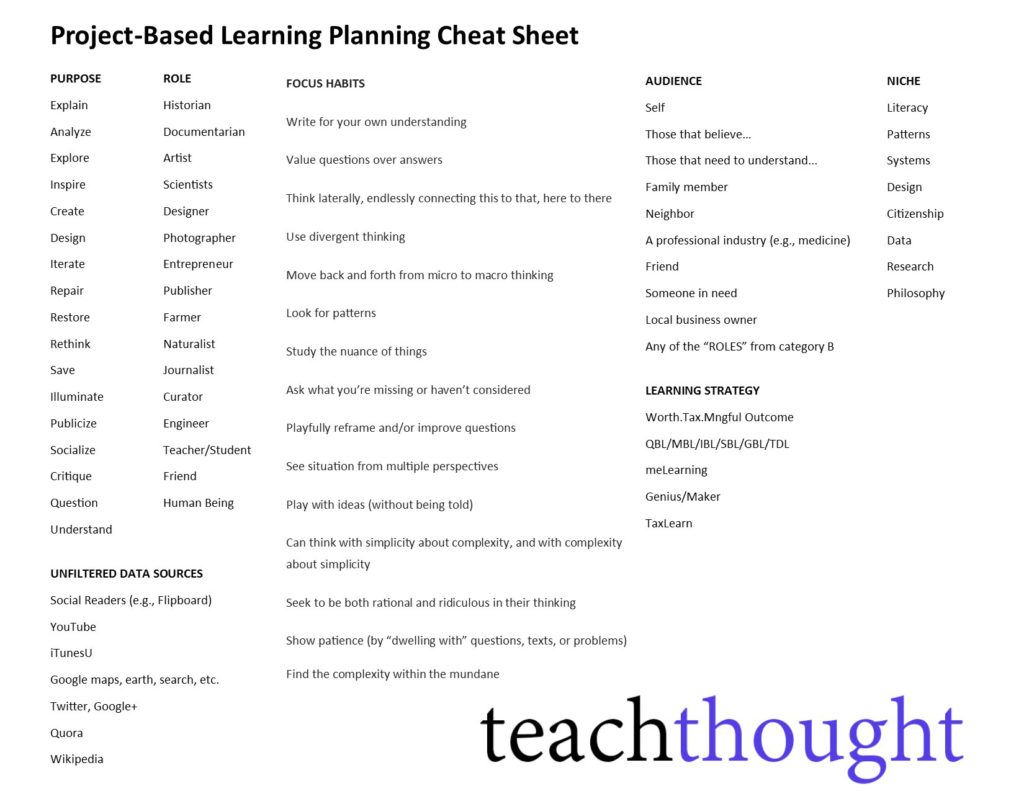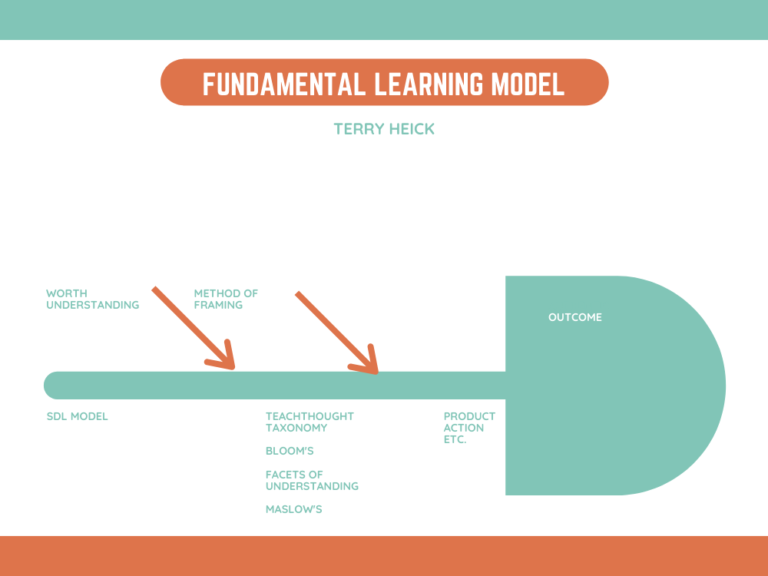



Choose Topic Worth Knowing Choose Method Of Framing Choose Specific Outcome
Possibility Learning: Learning Though Endless Combinations Pick and choose one or more of the following “pieces” to use and/or combine to create a learning experience that’s meaningful to you, and results in something interesting, playful, and uniquely “you. Try to start with yourself: Who are you, what are you a part of, and what does…
Literary Terms and Devices Allegory A symbolic narrative in which the surface details imply a secondary meaning. Allegory often takes the form of a story in which the characters represent moral qualities. The most famous example in English is John Bunyan’s Pilgrim’s Progress, in which the name of the central character, Pilgrim, epitomizes the book’s…
50 Activities To Promote Digital Media Literacy In Students Infer the author’s purpose. Distinguish between primary and secondary audiences. Summarize the media by identifying its 3-5 most important ideas or events. Identify and diagram the literary elements (e.g., setting, characters, conflict, etc.) Identify and analyze characters as major or minor; flat or round; static or…
Finding 1. Skim past less helpful info. 2. Use relevant keywords 3. Choose general vs. specific searches 4. Document/curate artifacts from search process Evaluation 1. For credibility 2. For timeliness 3. For bias 4. For relevance Citing 1. Understanding rights/copyrights/creative common 2. Use appropriate citation form (MLS, ALA) Questioning 1. Begin inquiry with relevant question…